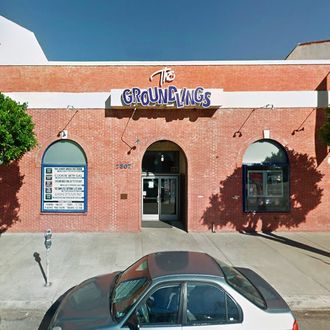
Current and former performers at the Groundlings — the Los Angeles–based improv theater and school that has been home to alums like Phil Hartman, Will Ferrell, and Kristen Wiig — have banded together to demand the theater address its systemic racism. After talking with Groundlings performers, staffers, and alums since early June, former Sunday Company member Nick Bouier drafted an open letter to the improv institution, in which he recaps his experience as one of the few Black students and performers and explains the ways the theater tokenizes Black improvisers and how its lack of diversity continually perpetuates itself. “When the theater released a statement in support of Black Lives Matter, I thought on my experiences and those of my friends. How they felt let down by a theater that touts itself as a meritocracy while operating like a Country Club,” Bouier wrote. “If you honestly believe that black life matters, prove it by taking the steps to make them matter on your stages. If you cannot do this, then we as a community will divest from your institution and create our own to service the needs that you’ve failed to address. This is more than a matter of fact; it is a matter of time.” Fifty current and former Groundlings students, teachers, and performers have signed the open letter so far.
The document outlines a list of actions the theater must take in order to improve, including an overhaul of the school’s structure (the letter argues it “overwhelmingly awards white performers while ignoring BIPOC performers”); the creation of an “accountability board” or “on-site therapy for students who’ve been mistreated by teachers, faculty, staff, and students”; outreach programs; and “a Rooney Rule for hiring in all departments.” The letter also includes data on white, Black, and non-Black POC Main Company members, teachers, and Sunday Company members, which have historically been over 94, 91, and 85 percent white, respectively. Bouier ends the letter by calling on the theater to consider how it wants to be seen in the future. “How do you want to be remembered and what will be your legacy once the world re-opens?” he wrote. “Are you okay with the product that you put out? Are you okay with being known as the whitest improv institution? A dubious distinction considering the standard of whiteness that improv is already. Are you okay with the idea that BIPOC performers do not feel safe in your halls?”
Read the full letter below:
“I’m a comedian, so I’m naturally cynical, but I hope they see this as a problem that they have the power to fix,” Bouier told Vulture, noting that the Groundlings is in a “unique position” to help shift the racial landscape in entertainment. “They’re gatekeepers, but historically they’ve been part of the problem and not the solution. Making meaningful changes and not just fixing tip-of-the-iceberg problems could have an effect not only on the theater but the larger industry — especially considering that many Groundlings alums are working.”
Alums from the Second City, the Upright Citizens Brigade, and iO made efforts in early to mid-June to demand their theaters address systemic racism. On June 10, the Groundlings released a statement on Instagram and Twitter titled “Our Commitment to Change,” in which it pledged to continue its diversity programs, start monthly workshops “specifically for our BIPOC students,” ensure “more BIPOC voices will appear on our stage,” improve hiring practices, and provide anti-racist training for all performers, teachers, and staffers. But to alums like Bouier — whose letter calls for the theater to implement official short- and long-term plans as well as hire an “outside agent” to hold the theater accountable — it’s not enough. “You can’t truly talk about oppression if it’s not your experience, if it’s not a priority to you because it impacts your life daily,” he said. “They don’t know how to respond, and in many ways I worry that they’re scared to do so because they know their track record.” Bouier also said many performers and staffers at the Groundlings are afraid to speak up or sign the letter because they fear retaliation, which is why he took the initiative to write it himself. “This isn’t about me. This is about the students there still who deserve a fair shot,” he said. “But also, my goal is to come back ten years or less from now to see real, impactful change. If that happens, then this letter will have actually had meaning.”


